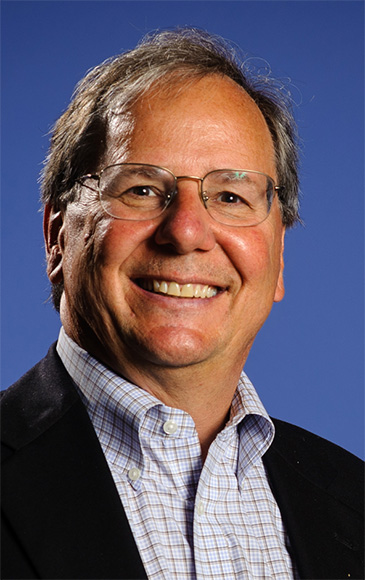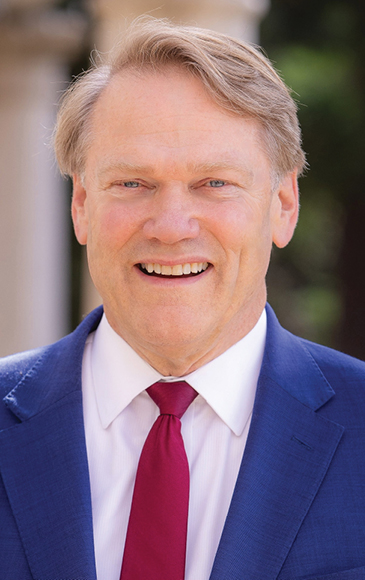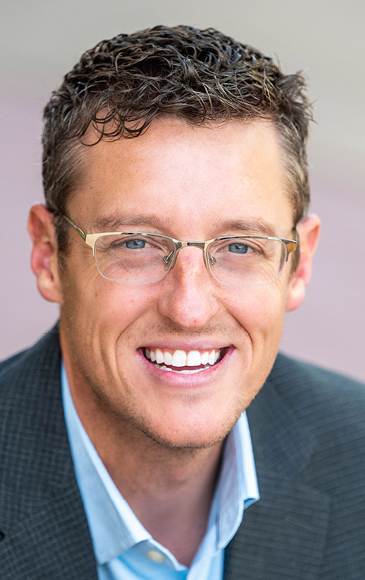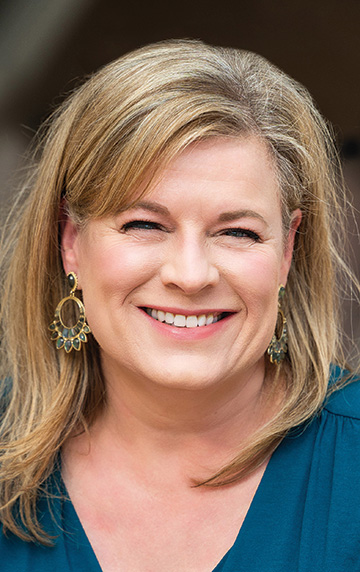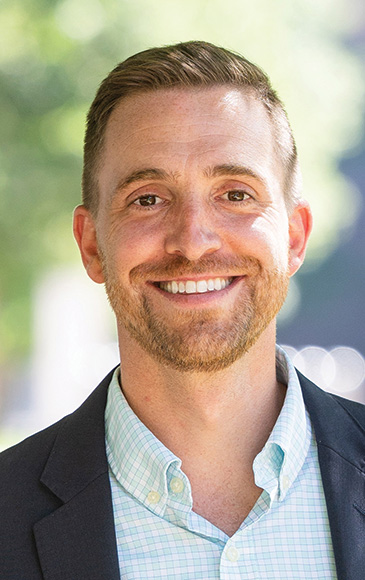At the Crossroads of Faith and Work
Six Authors Discuss Christian Vocation
We all compartmentalize our lives to a certain extent. There's often a separation between work, life, and faith—but as Christians, when we are living fully as God intended us to live, our work and faith are integrated seamlessly in our lives whether in a secular or Christian environment. What if during this time of new rhythms and routines as we embark on a new year, we all found a way to see our faithful approach to work as way of advancing God's work?
In this insightful conversation, six IVP authors with new books about the intersection of faith and work share their insights on the benefits of bringing both elements of life together, regardless of your vocation, all for the glory of God.
What do you believe is God's view of work? How does this belief inform both what you do for work and how you do it?
Jeff Haanen: Well, God views our work as good but fallen—like us. As such, God sees our work as an opportunity to develop a relationship with us—to work in us before he works through us. I believe both the what and the how of work should be a response to God's voice in our lives. Work is just one way we love God and neighbor.
Joanna Meyer: Any conversation about work starts with the role work plays in the narrative arc of Scripture. At creation, we see that humans are made in God's image—made to be like him as relational, creative beings and entrusted with the stewardship and development of the Earth. This creative potential, while hindered by the effects of sin, flows through the work of farmers, craftspeople, civil servants, laborers, and more across the pages of Scripture. Christ's death and resurrection offer hope, not only for individual souls but for all of creation, as our daily work becomes part of Christ's ongoing work to heal every corner of life that has been affected by sin.
In what ways do we allow work to form our faith? In what ways should our faith form our work?
Ross Chapman: God commanded us to follow his example: six days of work and one day of rest. That means work has a more outsized role in shaping our lives than anything else in terms of time, energy, focus, and priorities. Work need not be limited to paid work when we think of it this way; it includes family work, volunteer work, and the work we do for restful leisure. Whether we allow it to or not, work forms our faith. Work is our primary discipleship arena because every decision, situation, relationship, and outcome at work either forms or deforms our faith.
Gayle Beebe: Gregory the Great (540-604) was a great advocate of the path of spiritual formation entitled, "action and contemplation." Gregory believed our active life gave rise to the content of our prayer life and the way we prayed and the things for which we prayed influenced the way in which we engaged our duties and responsibilities in the active life. I believe our purpose in life is to maximize our God-given gifts and abilities for the kingdom of God and the greater good of society. I also believe it is our responsibility to maximize the God-Given gifts and abilities of those under our care and influence. One informs the other for all.
Jeff Haanen: We should allow work to form our faith inasmuch as work is the context of our real lives, and God only meets us in our real, daily experiences. Work can surface pain and wounds or self-knowledge and giftings, each an opportunity for union and communion with Christ.
Faith should form all aspects of our work: our emotional experience of work, our thoughts about work or our companies, the work we actually do, the relationships we have with co-workers, and the larger public or systemic issues to which our faith speaks.
How can we be redemptively transformed by God in our work?
Barry Rowan: God uses our work to do his work in us, and it is some of his most important, deepest work. As his work takes root in us, we will embrace challenges as fodder for our growth. We will no longer see failure through the world's eyes, but more accurately as a failure to try or a failure to learn. Perseverance will work its way more deeply into the dough of our souls. God will transform the substance of our being from selfishness to selflessness. We will become more other-centered and less self-centered. We will be willing to empty ourselves and our desires for the benefit of others and the organizations we serve. As we are transformed by God, he will transform the world through us.
Gayle Beebe: We need to do a daily inventory of our life and our activities within it. This includes our work. What went well? What went poorly? What could have gotten better? How do we come back from mistakes? And, when is it right to apologize and take ownership for plans and strategies that didn't work out without undermining appropriate roles and responsibilities? These are all ways God impacts us and transforms us in and through our work.
Jeff Haanen: I believe it happens when we commit to "working from the inside out." Instead of looking at external markers of professional success, we first focus on our interior lives (seek deep spiritual health, think theologically), then move to our exterior lives (embrace relationships, create good work), and finally allow God to transform our civic lives (serve others sacrificially).
In what ways do practical and spiritual challenges limit us from connecting faith with work?
Ryan Tafilowski: There are all kinds of pressures that can make our lives at work unfruitful, spiritually. For one, Western cultures have made an idolatry of work by placing it at the center of reality and identity, which malforms us away from the image of Jesus Christ. We also may face seasons where our work seems futile and pointless, where we just can't see how it makes any difference in the world. A better theological framework doesn't "solve" these problems, but it can alleviate some of the pain points.
Gayle Beebe: Our limitations are usually of our own making. We often need to learn how to look at them differently, but haven't developed enough spiritual curiosity to ask why is my life this way rather another way? Why did this happen and what can I find in this experience that will connect me with the suffering and setbacks others face? Can I be an empathetic person or at least a more empathetic person that I am right now? How do I balance my need for justice with God's infinite mercy and grace? Spending more time finding answers to these questions would help us better connect faith with work.
How have you seen the challenges you have faced in the workplace grow your faith?
Gayle Beebe: My forthcoming book The Crucibles that Shape Us, is written largely in response to this shaping question. I believe God has given us a great capacity to endure great loss and setback, and inevitably, we come to see his purposes at a deeper level when we persevere through challenges in the workplace.
Ross Chapman: God shows up mostly clearly and tangibly in the challenges I face at work, especially in seasons of transition. As a nonprofit founder and leader, he has shown up through donors in existential challenges of meeting the budget, through just the right connections and ideas during strategic planning, and in seeing kingdom fruit in ways we could not have anticipated in our outcome projections. He continues to demonstrate his faithfulness in those ways; yet there are times when those things do not work out. And in those moments, he reminds me that nothing is different about me or how he sees me and feels about me. The job is not what defines who I am or my value; he still calls me his and invites me into new work.
What are some of the tangible ways our careers can serve the will of God? In what ways do you believe your career has served the will of God?
Ryan Tafilowski: Our work serves the will of God wherever it brings order out of chaos and promotes flourishing for ourselves, for our neighbors, and for our places. It's important that we understand that our work is always ambiguous (it is never purely holy and good) because we do all our work under the conditions of sin and finitude, but it is nonetheless true that work is one of the means that God uses to provide for the needs of the world, which is an expression of his grace and universal concern for his creatures.
Joanna Meyer: When you start with the conviction that all work matters to God, then any form of work, when done with God and for his purposes, can serve his will. The challenge lies in bringing a gospel lens to your unique subject matter expertise, sphere of influence, and resources. I often joke that I have a patchwork quilt of a career because I haven't followed a linear path in a single industry. Rather each step of the way, through parachurch ministry, corporate life, freelance consulting, and now through my work at a faith-based nonprofit, God has equipped me with a diverse set of skills needed in my current role. My work has also been shaped by my life stage. A single woman without kids, I needed a vision for women's work and leadership that wasn't defined primarily by one's relational roles. This process fueled the founding of the Women, Work, & Calling initiative and now a book by the same name.
Barry Rowan: After first calling me to himself, God led me to a career in business leadership providing me with a sacred opportunity to express my faith through my work—in actions more than words. I believe the fundamental purpose of business is to serve. And business distinctively contributes to society through four primary ways: 1) responsible value creation, 2) creating an environment that enables employees to grow into the full expressions of ourselves, 3) serving customers (for when we are serving customers we are serving our God who dwells in every person), and 4) by being responsible citizens as individuals and organizations in the communities where we operate.
Our sense of purpose and value can easily feel tied to our career or job title. What are some perspectives on faith and work for those who don't have traditional careers outside the home, like stay-at-home parents, retirees, and people with disabilities that limit work opportunities?
Barry Rowan: We are not what we do; rather, what we do is an expression of who we are. As we are emptied of ourselves and filled with God, this Jesus living in us washes dishes, cares for our children, smiles at the postal clerk, and leads multi-billion-dollar businesses. We can come alongside others who are working in the world as prayer partners. And even as we succumb to debilitating diseases like Alzheimer's, our work is not finished as we become God's instruments to help others learn and express self-emptying love.
Joanna Meyer: A broad view of calling provides a helpful framework for answering this question. Before God ever calls us to a specific role or relationship, he calls us to himself—to a relationship with him, to a life of discipleship and service. As author Os Guinness explains, "We are not called to do something or go somewhere; we are called to Someone. We are not called first to special work but to God. The key to answering the call is to be devoted to no one and to nothing above God himself." This concept of calling as a whole-life response to God challenges the hierarchy of importance we ascribe to various types of work. It also invites us to see any life stage or season as ripe with potential as we live with God and for him through our daily work, regardless of where that work takes place or what that work is.
Ross Chapman: The faith and work movement hasn't done a great job speaking to all kinds of work. We need the voices of stay-at-home parents, retirees, and people of all abilities to share how they live out the Christian vocation in their daily work. We also need students and workers in blue- and white-collar jobs of all kinds to do the same.
God's view of work is inclusive of all kinds of work–paid, unpaid, at home, at work. Rather than allowing our career or job title, or our lack of one or the one we want, to dictate how we feel about our value and purpose, we must bring our identity in Christ to whatever work God has put in front of us to do.
Jeff Haanen: For all, I'd say that our identity should never be rooted in our work, but instead in Christ's work on our behalf.
As the New Year arrives in what ways do you plan to be intentional about bringing greater meaning and purpose to your life's work?
Joanna Meyer: I see my daily work as an opportunity to become more aware of God's presence with me at work, to seek new ideas for godly influence and stewardship, and to allow my character to be formed through the pressures I face on the job.
Ryan Tafilowksi: For me, spiritual health in this season of my professional life will look like recognizing that I am a creature with limits which should not be resisted, but embraced. A good theology of work also ought to give us resources for rest and a sober-yet-hopeful understanding that we simply may not be able to accomplish all that we wish we could—and that we are accepted by and beloved of God all the same.
What are the deeper questions we should be asking about our work that we aren't? What fruit could come from it if we did?
Ryan Tafilowski: I find it helpful to ask the following questions about our work: 1) What is? Meaning, what is the current state or my work or my industry? 2) What is broken about my work or industry? Where has sin distorted God's intentions? 3) What could be? What are redemptive possibilities my work or my industry? Working through these questions, in my experience, can open our imaginations about creative ways that we might join in God's work.
Ross Chapman: In what ways do I intentionally or subconsciously devalue my work by limiting its spiritual value to financial security for myself or my family, generosity for causes and organizations that are doing more spiritually valuable work, and/or evangelism for co-workers and customers?
The fruit of answering this question is putting on a new lens to see everyday work as an opportunity to water other seeds of redemption God has placed in front of me at work, such as sacrificially providing for the financial needs of a co-worker, taking a reduced profit on a development project because the project is essential for the flourishing of a community, or championing policy changes that dignify and rightly value the work of every employee in a company.
Barry Rowan: What if the truth of God's perspective of work caught fire in our society and transformed it? What if revival spread across our society through the power of people working for God? What would it take to go from a small group of people deeply committed to these ideas to a broad-based movement? Businesses would be run with high standards and broad definitions of success, politicians would seek to promote the common good more than themselves, architects would design buildings of elegant beauty and practical functionality, stay-at-home parents would embrace the importance of their jobs. I long for that day.





